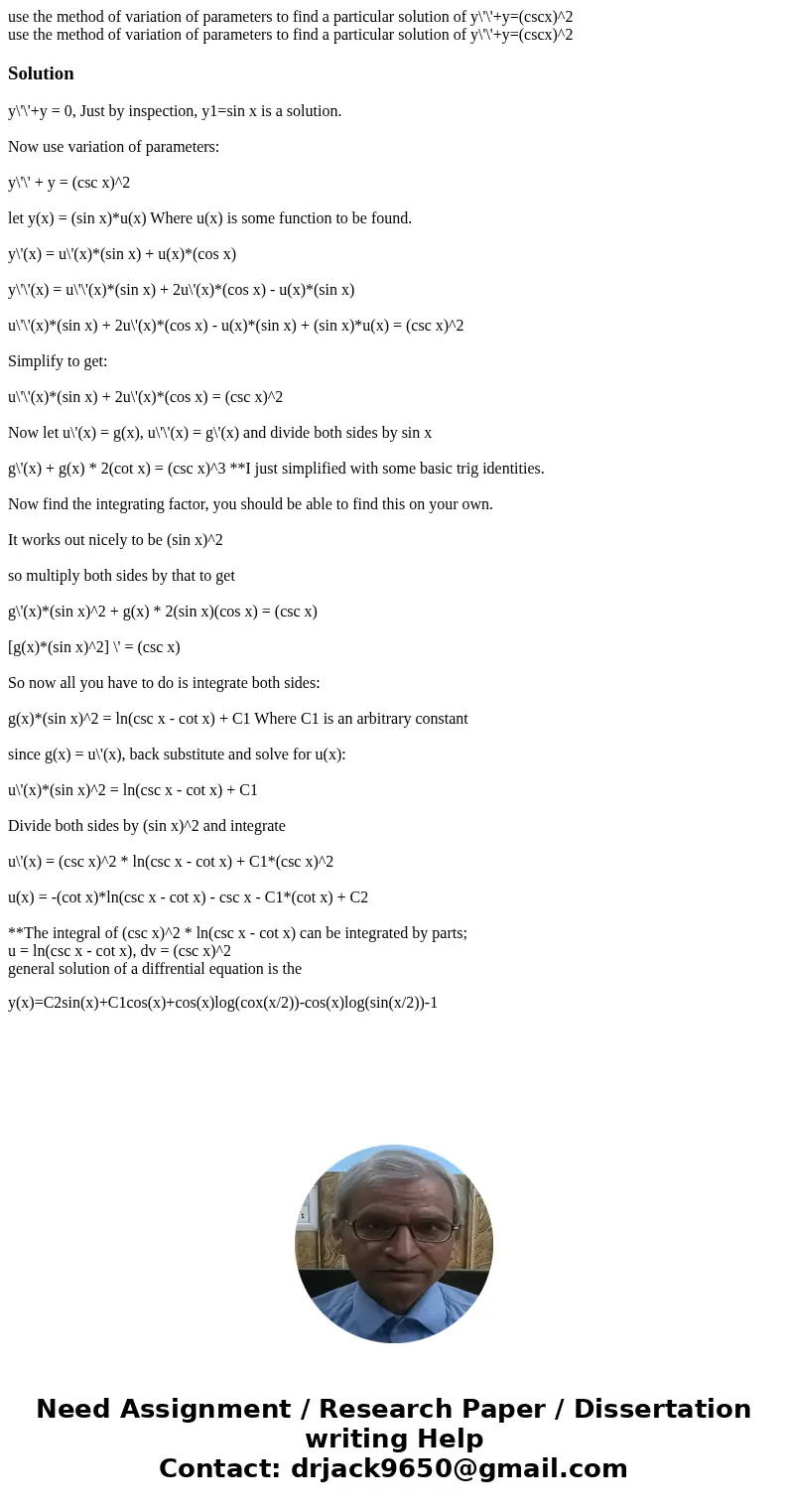use the method of variation of parameters to find a particul
Solution
y\'\'+y = 0, Just by inspection, y1=sin x is a solution.
Now use variation of parameters:
y\'\' + y = (csc x)^2
let y(x) = (sin x)*u(x) Where u(x) is some function to be found.
y\'(x) = u\'(x)*(sin x) + u(x)*(cos x)
y\'\'(x) = u\'\'(x)*(sin x) + 2u\'(x)*(cos x) - u(x)*(sin x)
u\'\'(x)*(sin x) + 2u\'(x)*(cos x) - u(x)*(sin x) + (sin x)*u(x) = (csc x)^2
Simplify to get:
u\'\'(x)*(sin x) + 2u\'(x)*(cos x) = (csc x)^2
Now let u\'(x) = g(x), u\'\'(x) = g\'(x) and divide both sides by sin x
g\'(x) + g(x) * 2(cot x) = (csc x)^3 **I just simplified with some basic trig identities.
Now find the integrating factor, you should be able to find this on your own.
It works out nicely to be (sin x)^2
so multiply both sides by that to get
g\'(x)*(sin x)^2 + g(x) * 2(sin x)(cos x) = (csc x)
[g(x)*(sin x)^2] \' = (csc x)
So now all you have to do is integrate both sides:
g(x)*(sin x)^2 = ln(csc x - cot x) + C1 Where C1 is an arbitrary constant
since g(x) = u\'(x), back substitute and solve for u(x):
u\'(x)*(sin x)^2 = ln(csc x - cot x) + C1
Divide both sides by (sin x)^2 and integrate
u\'(x) = (csc x)^2 * ln(csc x - cot x) + C1*(csc x)^2
u(x) = -(cot x)*ln(csc x - cot x) - csc x - C1*(cot x) + C2
**The integral of (csc x)^2 * ln(csc x - cot x) can be integrated by parts;
u = ln(csc x - cot x), dv = (csc x)^2
general solution of a diffrential equation is the
y(x)=C2sin(x)+C1cos(x)+cos(x)log(cox(x/2))-cos(x)log(sin(x/2))-1

 Homework Sourse
Homework Sourse